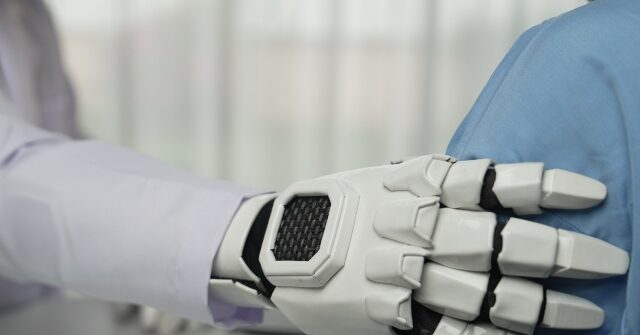Microsoft has developed an AI diagnostic tool that it claims can diagnose diseases with significantly higher accuracy and lower costs compared to human physicians.
Wired reports that Microsoft has taken a significant step towards what it calls “medical superintelligence” with its new AI diagnostic system, MAI Diagnostic Orchestrator (MAI-DxO). The tech giant claims that MAI-DxO can diagnose ailments four times more accurately than a panel of human doctors while also reducing healthcare costs.
The MAI-DxO system was tested using 304 case studies from the New England Journal of Medicine, which were broken down into step-by-step processes that doctors typically follow to reach a diagnosis. Microsoft’s researchers then built MAI-DxO to query several leading AI models, including OpenAI’s GPT, Google’s Gemini, Anthropic’s Claude, Meta’s Llama, and xAI’s Grok, in a manner that mimics the collaboration of multiple human experts.
Microsoft claims MAI-DxO achieved an accuracy rate of 80 percent compared to the human doctors’ 20 percent. Additionally, the AI system reduced costs by 20 percent by selecting less expensive tests and procedures.
Mustafa Suleyman, CEO of Microsoft’s artificial intelligence arm, believes that multiple AI agents working together in a chain-of-debate style, will drive the industry closer to medical superintelligence. The company has also recruited several top Google AI researchers to assist with this effort, further intensifying the competition for AI expertise in the tech industry.
The project is part of a growing body of research demonstrating the potential of AI models in diagnosing diseases. In recent years, both Microsoft and Google have published papers showing that large language models can accurately diagnose ailments when given access to medical records. However, what sets Microsoft’s research apart is its approach to replicating the way human physicians diagnose diseases by analyzing symptoms, ordering tests, and performing further analysis until a diagnosis is reached.
The implications of this technology extend beyond improved diagnostic accuracy, as it also suggests that AI could help reduce healthcare costs, a critical issue, particularly in the United States. Dominic King, a Microsoft VP involved with the project, emphasizes the model’s ability to reach a diagnosis cost effectively.
While the research has been met with excitement, some experts caution that the findings should be treated with some reservations. David Sontag, a scientist at MIT and co-founder of Layer Health, points out that the study did not allow doctors to use additional tools that they might typically employ in real-life scenarios. He also notes that further validation is needed to determine if the AI system would significantly reduce costs in practice.
To fully validate the potential of Microsoft’s MAI-DxO system before general deployment, both Sontag and Eric Topol, a scientist at the Scripps Research Institute, suggest conducting a clinical trial comparing the AI’s results with those of real doctors treating actual patients.
Read more at Wired here.
Lucas Nolan is a reporter for Breitbart News covering issues of free speech and online censorship.
Read the full article here
